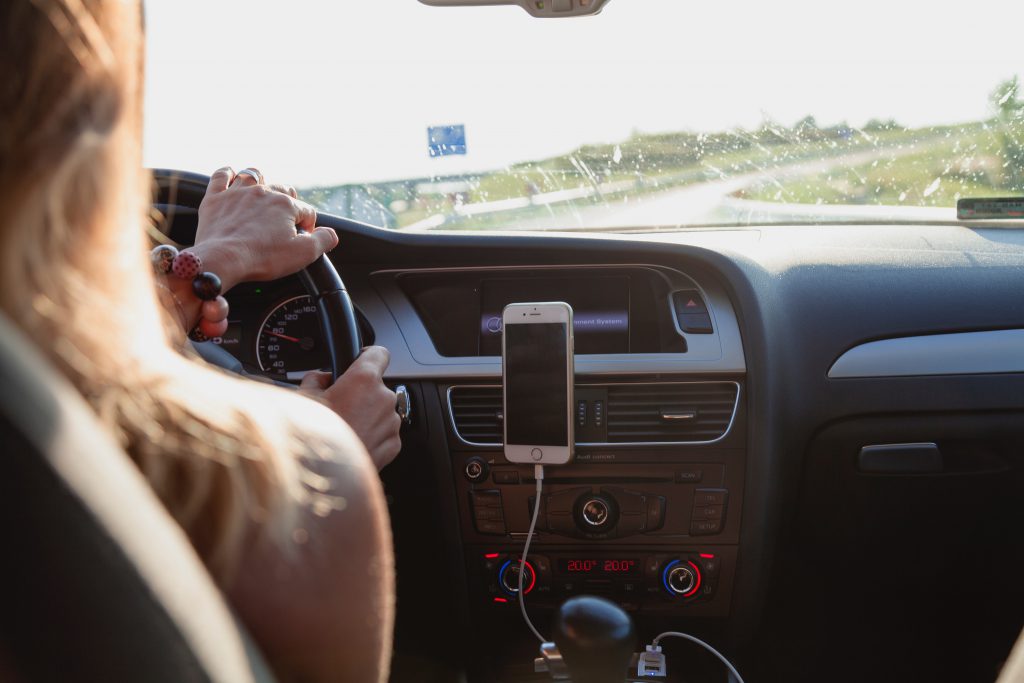I walked in the door with the pizza. My wife looked at me and my daughter and asked, “How did it go?” She looked back at my wife and says, “Maybe you should ask him.” Of course, I get the questioning look from my wife. It wasn’t necessary to discuss the near collision in the parking lot a few minutes earlier. I overreacted, my daughter learned a lesson.
I’m new to this and I’ll admit, I don’t always handle things as calmly as I should. You see, my first child, my daughter, my little girl… is learning to drive. I know some of you can sympathize with my anxiety while others are thinking, “Hang in there. You’ll get through this.”
Now I must qualify, my daughter is a great kid, responsible and bright. So why is it that when I take that passenger seat and look over at this little girl, who I took to Gymboree and taught to ride a bicycle, do I feel a tightening in my stomach? Of course, part of it is that she is just learning, is remarkably inexperienced, and most importantly, for those 20 minutes to the pizza parlor and back, my life was in her hands. Forgive me if my primitive fight or flight instincts bubble just under the surface. So, the question now presents itself: Is my fear well-founded? Being a psychologist, I couldn’t help myself. I went to the research.
According to the National Institutes of Health, while teenagers are statistically in the healthiest period of the lifespan, their behavior is paradoxically fraught with risk. For a variety of reasons, teenagers on the whole engage in riskier behaviors. Interestingly, this is a phenomenon that is observed throughout the animal kingdom. In addition to emotional and physiological immaturity, and lack of life experience, the teenager’s desire to establish greater independence all leads to increased impulsivity and risk-taking behaviors.
Adding to the risk of the teen driver is the relatively less developed ability to multitask as compared to the adult driver. Most, if not all, are familiar with the significant distractions posed by cell phones and texting, but did you know that texting is not the leading distraction for teen drivers? Believe it or not, other distractions, such as adjusting the radio and, even more so, the presence of distracting passengers and loud conversation are significant distractions to the novice driver. Studies have also shown that passenger characteristics may be a factor. For example, one naturalistic study showed that in observing cars leaving high school parking lots, those with male passengers drove at a higher rate of speed and closer to the leading vehicle. In another simulator-based study, drivers were more likely to run through red lights in the presence of a risk-accepting passenger. Risk-taking behaviors were also more pronounced in the presence of a risk-accepting passenger than a risk-averse passenger. Along those lines, even mild peer pressure – to take risks such as to drive faster or not – was also a significant factor in the way the novice driver performed. Naturalistic studies have shown that teenagers leaving the high school parking lot are more likely to follow the lead car more closely and drive at a higher speed.
Let us also not forget proper sleep – another major issue for today’s teenagers. There is very strong evidence that teenagers with poor sleep habits are more likely to be diagnosed with ADHD. Poor sleep and fatigue can lead to distraction. Many of today’s teenagers face grueling extracurricular and academic schedules, not to mention the demands of social media – all of which can interfere with proper sleep. Impact on academic performance is common. However, the risk also extends to driving where the risk of distraction is significantly increased.
There is exhaustive research on teen driving and on teen behaviors. Ultimately, as in most skilled activities, it comes down to experience. Until then, some very basic ground rules should be followed. First off, good common-sense parenting is necessary. Know who will be in the car with your teenager. Know where they are going and know when you can expect them back. Don’t be afraid to express any concerns. And of course, educate your teen. They passed the driving test and they know the rules of the road, but make sure they are aware of the sources of distraction, such as a loud music, distracting conversation, and, of course, the cell phone. Eventually, their experience on the road will build and so will your comfort level.
Until then, I’ll try to be the best dad I can, providing support and calm correction, while encouraging the good decisions that will reduce some of the risks associated with teen driving.







